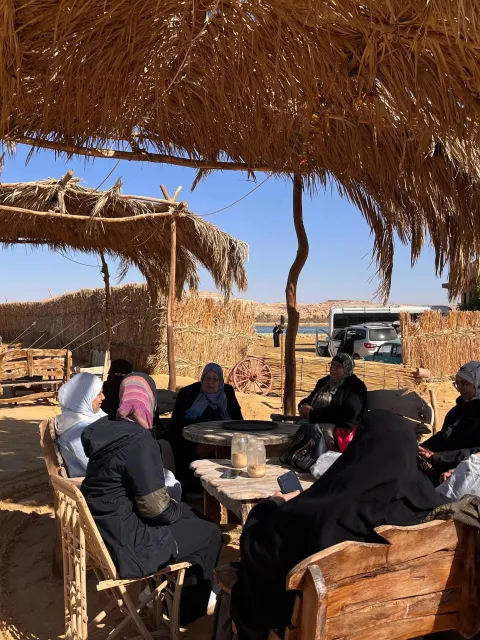The right to be forgotten: protecting people who have experienced cancer from discrimination
In an interview with UICC, George Kapetanakis, President of the Hellenic Cancer Federation, discusses efforts in Greece to eliminate financial discrimination against people who have experienced cancer.
HIGHLIGHTS
-
The Hellenic Cancer Federation (ELLOK), a UICC member organisation, is advocating for the 'right to be forgotten' legislation in Greece, allowing cancer survivors to omit their medical history from financial records after a certain period, reducing discrimination.
-
ELLOK works with various stakeholders, including the Ministry of Health, Ministry of Digital Governance, and European counterparts, to align Greece's policies with best practices and support the digital transformation of oncology care.
-
Despite challenges such as the lack of comprehensive cancer registries, ongoing digital initiatives supported by the European Resilience Fund aim to address these gaps by 2025, contributing to the broader national cancer plan in Greece for improved patient care and reintegration into society.
The Hellenic Cancer Federation (ELLOK), a UICC member organisation, is spearheading efforts to introduce the ‘right to be forgotten’ for people who have experienced cancer in Greece. This legislation would allow them to omit their cancer history from financial records after a certain time, thereby preventing them from being penalised for their past illness.
The Hellenic Cancer Federation (ELLOK) is the umbrella organisation for 48 cancer patient associations in Greece. It collaborates with the oncology community, research institutions, and the private sector. ELLOK participates in working groups with the Ministry of Health and Ministry of Digital Governance, focusing on improving cancer care and patient support through research and digital health initiatives.
George Kapetanakis, President of ELLOK, emphasised the necessity of this legislation: “Many cancer survivors face discrimination in the workplace and financial discrimination, including difficulties in obtaining loans, mortgages, and life insurance, even years after they have been declared cancer-free.” He noted that this discrimination hampers their ability to fully reintegrate into society and live normal lives.
"We want to people to know that there is life after cancer and you can be back again and be a normal member of the society with less discrimination than now and give you the same opportunities to build your life as someone who has not had cancer. By working close and together and developing an environment of trust, I believe that we are going to build better conditions for cancer survivors.”
– George Kapetanakis, President of the Hellenic Cancer Federation (ELLOK)
The current agreement in Greece stipulates that individuals who have been cancer-free and off medication for ten years can access financial services without disclosing their cancer history. For children, this period is reduced to five years. Kapetanakis described this as “the first step” towards comprehensive legislation.
Challenges remain, particularly due to Greece’s lack of comprehensive cancer registries. However, the ongoing digital transformation of Greece’s oncology care, supported by the European Resilience Fund, is expected to mitigate some of these challenges. Mr Kapetanakis expects this gap in data to be addressed by 2025.
ELLOK is also focused on the reintegration of cancer survivors into the workforce. Currently, a survey is being conducted to identify workplace challenges faced by cancer survivors, with the aim of informing future policy changes.
ELLOK’s efforts are aligned with a broader national cancer plan announced by the Ministry of Health. This plan includes developing a National Cancer Registry and improving access to innovative therapies and clinical trials. These initiatives aim to provide a robust support system for cancer patients and survivors, ensuring they receive timely and effective treatment.
This initiative in Greece aligns with broader European trends and legislation aimed at ensuring that cancer survivors can access financial services without prejudice. EU’s Beating Cancer Plan calls for a so-called code of conduct, making sure that cancer survivors only need to share necessary and vital information, and the EU Consumer Credits Directive (a set of EU rules to ensure that consumers are well-informed and treated fairly when signing credit agreements) was updated in 2023 to include provisions for cancer survivors.
Indeed, ELLOK collaborates with European counterparts to align Greece's policies with best practices across the continent, working with prominent figures such as Dr Françoise Meunier, a Belgium doctor and pioneer in leading efforts to create a harmonised legal framework across Europe for the right to be forgotten.
France was the first European country to adopt this legislation in 2016, significantly influenced by Dr Meunier’s advocacy. The law initially required a ten-year period post-treatment before patients could benefit, which was later reduced to five years in 2022.
This model has inspired several other European countries, including Belgium, Luxembourg, and Portugal, to implement similar laws. Greece is now set to follow this model, with ELLOK working closely with the Ministry of Finance and the Union of Insurance Companies to establish a code of conduct.
As Greece progresses towards enacting the right to be forgotten, George Kapetanakis remains optimistic about the future, highlighting the positive momentum in Greece's healthcare reforms towards ensuring that cancer survivors can live without the shadow of their past illness affecting their financial stability and quality of life.
"We want to foster an environment where cancer survivors are not just seen as patients but as active, productive members of society. By securing their right to be forgotten, we take a crucial step towards achieving this goal."
– George Kapetanakis, President of the Hellenic Cancer Federation (ELLOK)
Last update
Monday 21 July 2025





